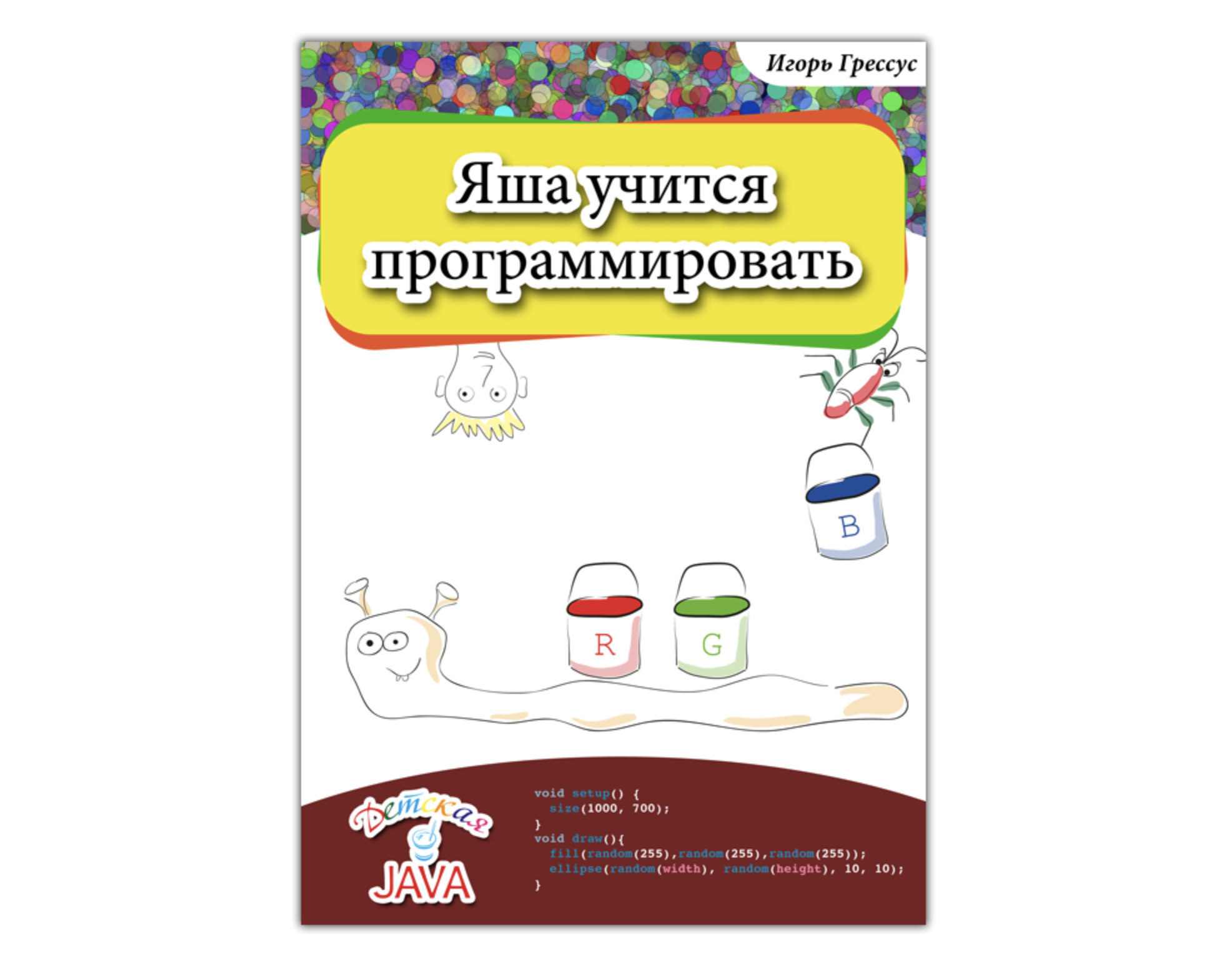
A book for kids: Yasha learns to program
27.11.2013
About a children's programming book
Wanting to teach my child how to program, I created my book. And it really worked! By fourth grade, my toddler was already creating his own games in a professional programming language! He understood loops, variables, functions, and even spelled English terms correctly. What's more, he mastered the basics so well that he soon began teaching his friends how to program. How did it work? I'll tell you in a moment.
Children's book: 'Yasha learns to program' by Igor Gressus
Imagine, this book started with just one page!
Almost all children love computer games. So one day I had an idea: could I use their enthusiasm for games to teach them? So I asked: "Do you know how games are created? They are programmed in special programming languages. It must be very interesting to create your own game!"
At first, the idea didn't immediately captivate the child. After a while, however, he began to share his ideas about what he would like to improve in his favorite games. And soon he said: "It would be great to be able to program, because you can make money with your mind!"
Then the question before me was, "What programming language should I choose?"
I started programming myself a long time ago on a little homemade computer my father had built. I had Basic and Assembler, my first programming languages. Then at school I learned Pascal (now Delphi), C, etc. But now I was wondering: "Should I choose the same languages to teach my child? Or has something new come along that is more appropriate, engaging, and easy to learn?"
And then I came across Processing language by chance.
I don't like to choose something new "just for fun", I prefer time-tested solutions. But Processing was based on Java - one of the most popular modern cross-platform professional languages, and it was respected. Processing was compatible with Java and grew out of it, making it a worthy choice for my kid's education.
However, Java is difficult for beginners. You can't just go in there and easily create something, like a colored oval running across the screen representing a bunny, or a rotating three-dimensional cube. But in Processing it is possible, and it caught my attention.
I later learned that Processing was created in 2001 by Casey Reeves and Ben Fry at MIT.
Eventually Casey Reeves appreciated my approach to writing the book and expressed his support. Processing was developed specifically for teaching and is now used in many Western schools.
I was interested in some of the issues, such as the compatibility of Processing with different computers. It turned out that it worked on both Windows and Mac, which was very convenient. Also, Processing was free, although it was possible to make a donation to develop it.
Before writing my book, I considered other programming languages, but they were either too simple or too difficult to understand. Processing, on the other hand, allowed me to create something exciting and inspiring from the first lines of code.
No special knowledge was required to start with Processing, but later on I could expand my skills and capabilities of the language without having to change it for another one.
After writing the first page, I encountered questions that were obvious to me as an experienced programmer. Instead of verbal explanations, I refined the text, improving it for younger readers. I used metaphors to explain terms and translated English words into Russian with pronunciation guidance - this was something I lacked as a self-study child myself.
Meanwhile, the book was gaining in brightness and uniqueness.
Thus, dry and faceless "data types" became bright and playful "families. "Variables" came to life and became "little monsters." Circular brackets became gates and shaped brackets became fences.
The magical world grew larger and stronger.
And the child's eyes shining with understanding and inspiration, as well as his first successful games, were a wonderful reward.
References
Book in pdf (for free): Yasha learns to program_1.6.pdf